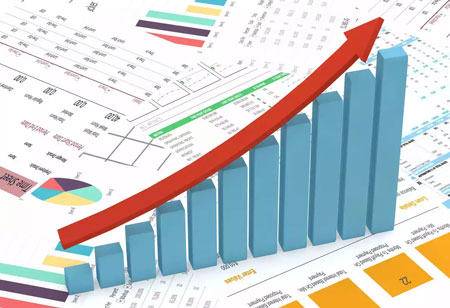
India's Growth for 2022-23 to be Strongest Among Largest Economies


CEOInsights Team, 0
"The recent strong run of data increases our confidence that India is well positioned to deliver domestic demand alpha, which will be particularly important as developed markets' growth weakness percolates into Asia's external demand", Morgan Stanley said. The key change in India's structural story lies in the clear shift in the policy focus towards lifting the productive capacity of the economy. Policymakers have taken up a series of reforms which will catalyze an upswing in the private capex cycle,
helping to unleash a powerful productivity dynamic, leading to the onset of a virtuous cycle.
Cyclically, the economy is lifting off after a prolonged period of adjustment. The corporate sector has delivered and the balance sheets of the financial sector have also been cleaned up. This backdrop of healthy balance sheets and rising corporate confidence bodes well for the outlook for business investment, the report said. The biggest challenge that was emerging to India's macro outlook was the sharp spike in oil/commodity prices weighing on macro stability.
"However, with the 23-37 percent decline in oil/ commodity prices since the March-22 peak, we think that macro stability indicators will head back towards the comfort zone. Against this backdrop, we project that the RBI does not need to lift rates deeply into restrictive territory. In other words, the RBI will not need to slow domestic demand growth meaningfully to control the macro stability indicators", the report said.
Cyclically, the economy is lifting off after a prolonged period of adjustment. The corporate sector has delivered and the balance sheets of the financial sector have also been cleaned up. This backdrop of healthy balance sheets and rising corporate confidence bodes well for the outlook for business investment, the report said. The biggest challenge that was emerging to India's macro outlook was the sharp spike in oil/commodity prices weighing on macro stability.
Cyclically, the economy is lifting off after a prolonged period of adjustment. The corporate sector has delivered and the balance sheets of the financial sector have also been cleaned up
"However, with the 23-37 percent decline in oil/ commodity prices since the March-22 peak, we think that macro stability indicators will head back towards the comfort zone. Against this backdrop, we project that the RBI does not need to lift rates deeply into restrictive territory. In other words, the RBI will not need to slow domestic demand growth meaningfully to control the macro stability indicators", the report said.